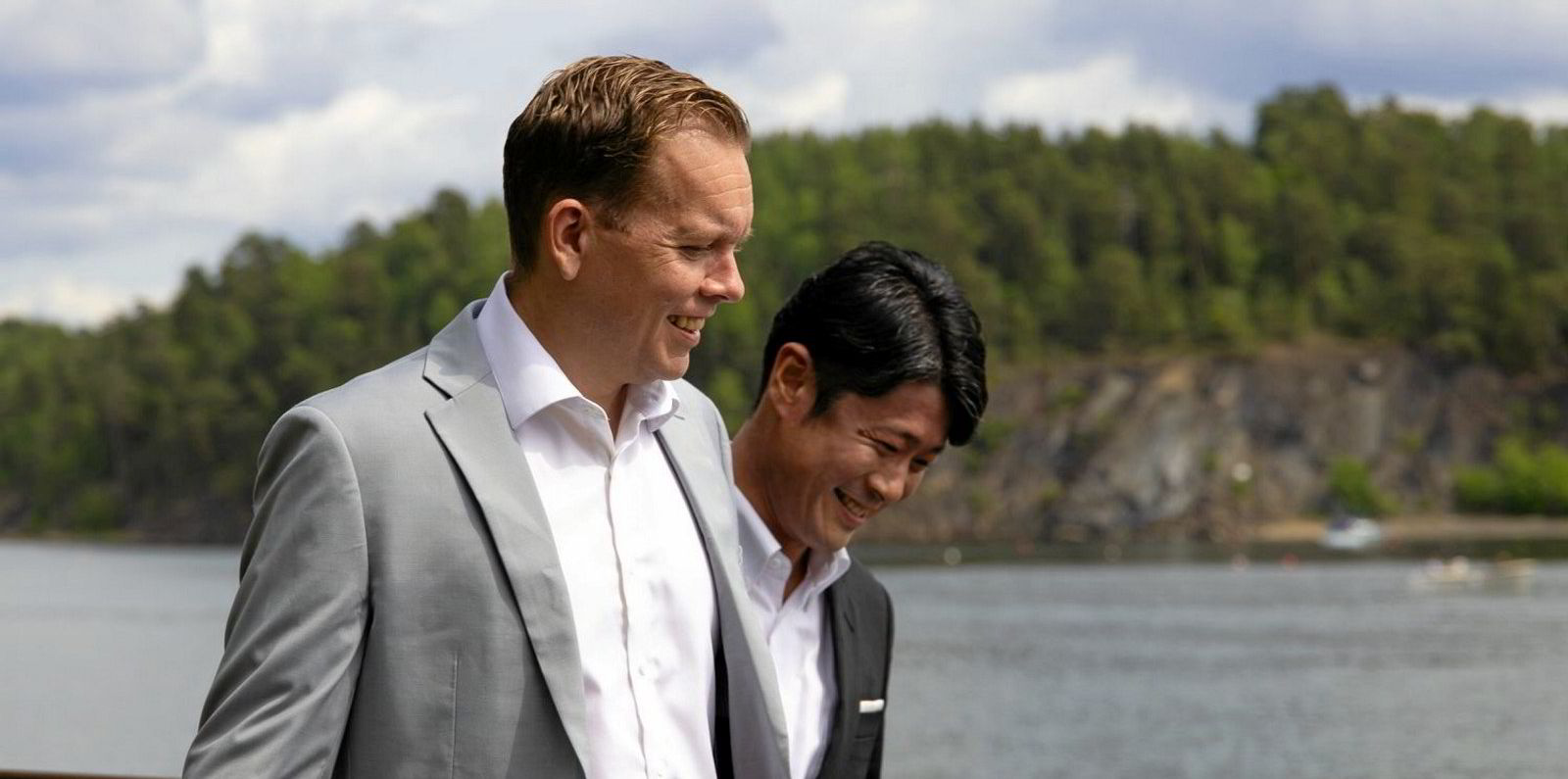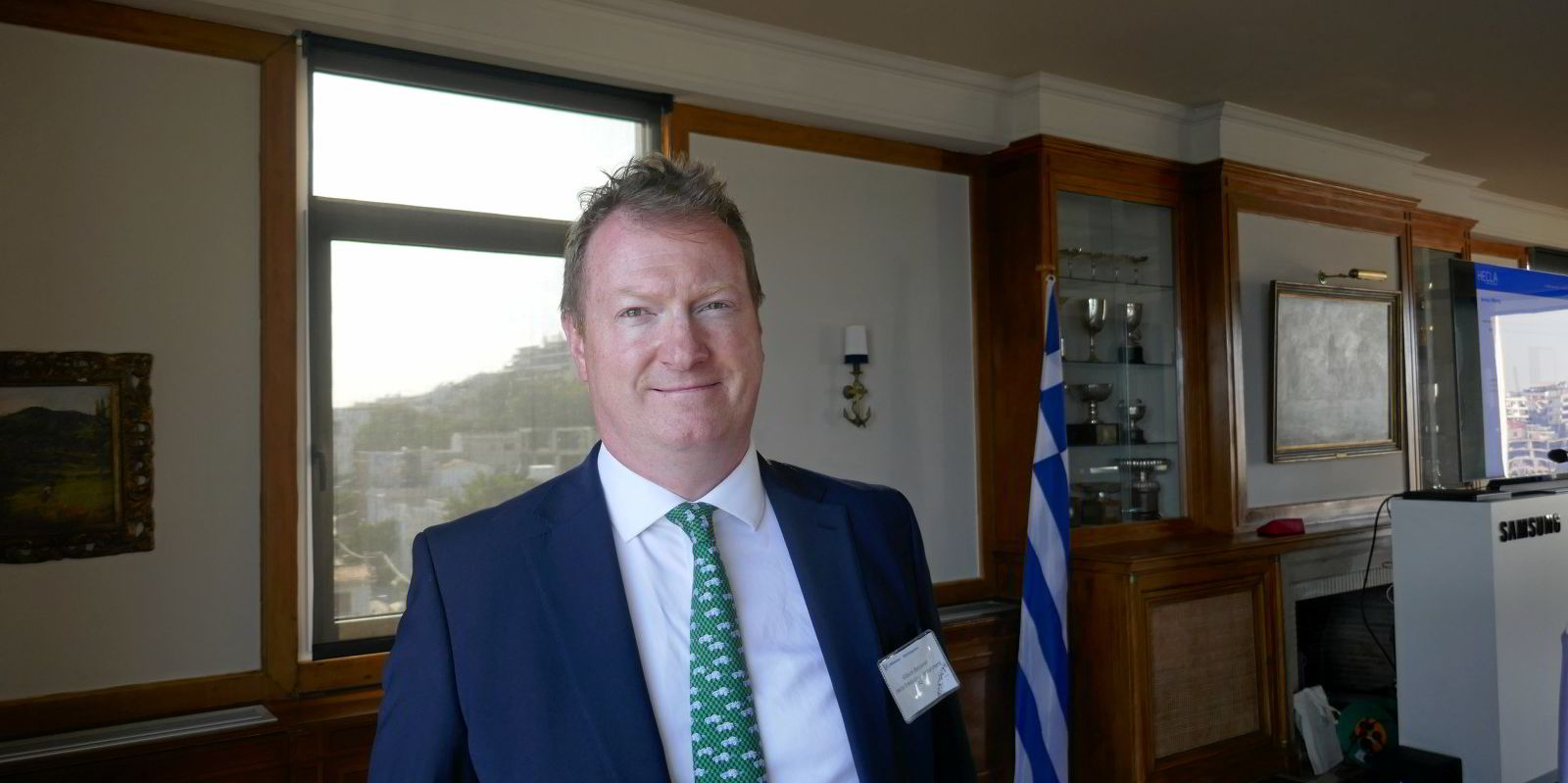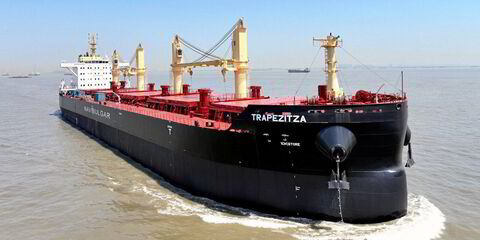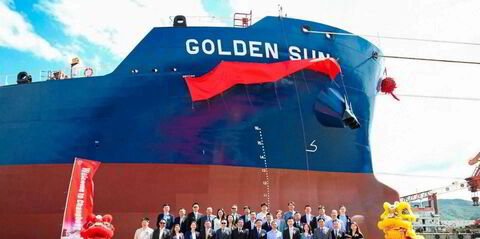Change is coming at the world’s largest pool for panamax bulkers, following Japanese trading house Marubeni Corp’s acquisition of a 25% stake in dry cargo operator Klaveness Dry Bulk.
The two companies have been joint partners in the Baumarine by MaruKlav pool for the past three years.
The new shareholder will provide “a fresh pair of eyes” when considering pool partners, according to Michael Jorgensen, managing director of the pool and head of Klaveness Dry Bulk.
“We have seen clear mutual advantage in working with Marubeni and would like to further strengthen this part of the business,” he said.
“Ideally we’ll align ourselves with one, maybe two new partners that add not only to the volume but also to the knowledge base of the pool.”
Looking only at the state of the markets, it seems like a good time for owners to consider pooling vessels or trading them in the spot market, rather than taking lower period rates, according to Jorgensen, “especially if you, like us, hold a fundamentally positive view to the next 18 months”.
“What is important for us to share is that being an owner in the pool is really about a ‘partnership’ of sorts, looking to manage the earnings and the asset of that particular owner as best as possible,” he said.
“Unlike fixed-rate conversion in index-linked deals, we actually want the owners to convert at peak markets — satisfaction and equal commitment — whereas on the evergreen index-linked deals, charterers are, for obvious reasons, more interested in conversion during market bottoms.
“The extreme volatility in the market is real and should be utilised for the benefit of owners/ charterers and not for the ‘financial players’.”
But the technical and commercial environment has grown ever more complex: the Carbon Intensity Indicator rules entered into force in January, and owners need to be ready for the European Union Emissions Trading System next year.
Klaveness’ freight data platform Market Manager is aimed at small to medium-sized charterers, operators and owners, especially those that are not investing heavily in data.
It has three live clients, is in commercial discussions with up to four more and hopes to be able to announce firm deals in the near future.
Klaveness wants Market Manager to deliver “real value” and hopes it will grow organically, through word-of-mouth recommendations, Michael Jorgensen said.
The group would possibly spin off Market Manager as a separate business if it proves successful.
“A lot of SAAS [software as a service] in shipping has been built around artificial growth matrices to meet certain numbers to please investors,” he said.
“But for us it’s really key a) we bring real value to clients; and b) we solve problems relevant to a broader scale of the industry — and often ourselves as well; and c) we remain agile in the problem solving, leading to solutions that can last for shorter or longer.”
Market Manager has purposely signed new clients up on initial contracts of just six months, which extend to 12-month contracts on renewal.
But the onus is on confirmation-based renewals to allow clients a way to exit. Jorgensen thinks “the old ‘auto-renewal’ of subscriptions hasn’t done much good for shipping”.
MaruKlav’s Baumarine pool stands at 28 panamaxes, following the sale of two bulkers. Its target volume is 40 to 50 ships.
Marubeni has nine vessels in the pool and Klaveness has three, two fewer than its usual average. Jorgensen said the company redelivered a couple of units to owners due to poor markets.
Added to this are vessels contributed by around 10 third-party owners, including Sealestial Navigation of Greece; London-based Greek owner AM Nomikos; S’hail Shipping of Qatar; Indian mining firm MSPL; First Steamship of Taiwan; and Japanese owner Meiji Shipping.
“Existing owners [in the pool] are actively discussing with us around regulations and the complexity that comes with that. We are in that sense constantly challenged to try and be ahead of the game,” Jorgensen said.
He thinks navigating this complexity is “something much better shared within a group of owners, over that of individual trial and error”.
“I guess this is why ‘stronger together’ really means something to us,” he said.
Other Japanese trading houses have tried in the past to set up their own operating arm but without great success. Marubeni is clearly taking a different approach to gaining additional commercial exposure to bulker market volatility without putting its money in steel.
Creating a bigger cake
Jorgensen said Marubeni’s investment came about because Klaveness Dry Bulk had proved that it was able to solve its clients’ problems and generate solutions that were mutually profitable.
“Don’t slice the cake — make it bigger. It all sounds rather simple and cliche but very rarely well executed,” he added.
“I do believe that our digital approach to things is another good aspect worth considering. We are in the business of improving the nature of shipping, and that very often starts with sharpening our own decision-making.”
What is interesting about the Marubeni deal is that it includes a stake in Klaveness’ tech platform Market Manager, a data offering to help chartering staff make better-informed decisions.
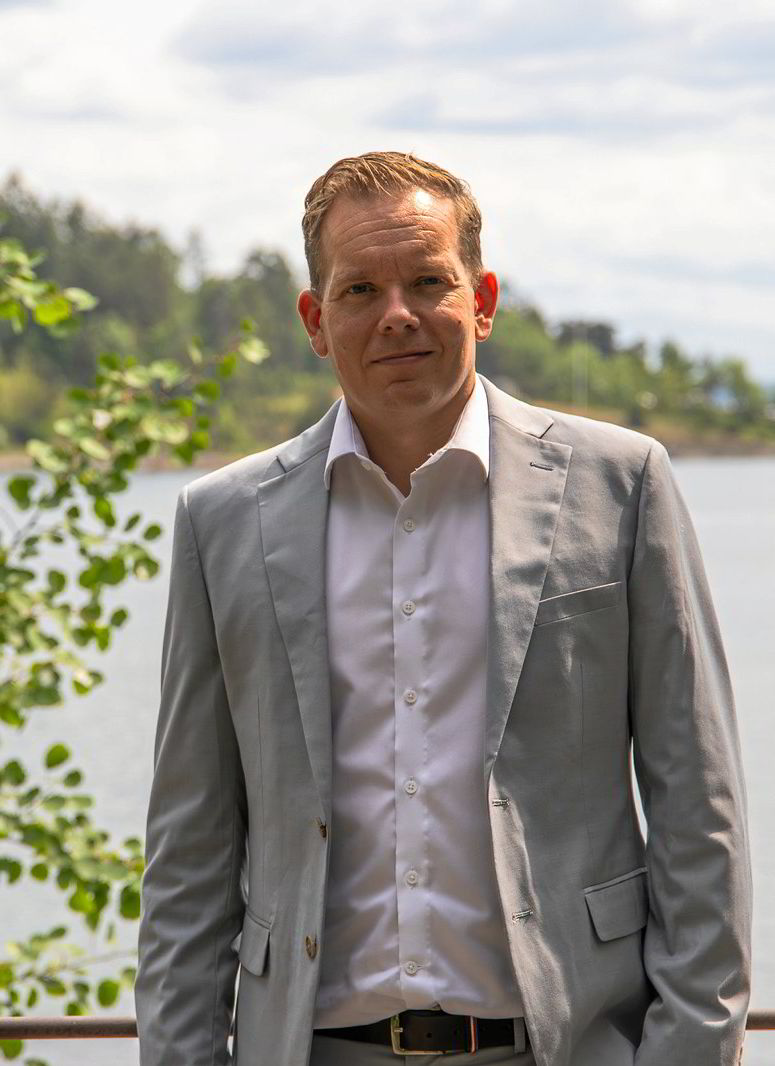
Data and technology will underpin the future of the MaruKlav pool.
“Not all players in the market have easy access to real freight decision-making tools [built by someone who understands the markets],” Jorgensen said.
The pool will continue building its machine learning initiatives for use in decision-making when fixing freight. These initiatives leverage data such as forward predictions, geographical spread, seasonality and vessel specifications.
Bulker markets seem to be settling down and there have been signs of consolidation, with the bigger players getting bigger — and Jorgensen sees them growing not just through acquisition, but also by finding new ways to leverage market intelligence.
“We are a client-focused dry bulk operator more than anything. This means solving problems with/for the clients,” he said.
“However, we also realise that we cannot solve all problems through your standard physical deals and that for [the] vast majority of the clients we can really do much more for them in making sure the right information is in front of them at the right time.”
And “the right time” may be a short window — “that 30 minutes that you make the key valuable decisions”.
Klaveness’ freight data platform Market Manager is aimed at small to medium-sized charterers, operators and owners, especially those that are not investing heavily in data.
The platform has three live clients and is in commercial discussions with up to four more. It hopes to be able to announce firm deals in the near future.
Klaveness wants Market Manager to deliver “real value” and hopes it will grow organically, through word-of-mouth recommendations, Michael Jorgensen said. The group would possibly spin off Market Manager as a separate business if it proves successful.
“A lot of SAAS [software as a service] in shipping has been built around artificial growth matrices to meet certain numbers to please investors,” he said, “but for us it’s really key a) we bring real value to clients; and b) we solve problems relevant to a broader scale of the industry — and often ourselves as well; and c) we remain agile in the problem solving, leading to solutions that can last for shorter or longer.”
Market Manager has purposely signed new clients up on initial contracts of just six months, which extend to 12-month contracts on renewal. But the onus is on confirmation-based renewals to allow clients a way to exit. Jorgensen thinks “the old ‘auto-renewal’ of subscriptions hasn’t done much good for shipping”.
